The image of the victimized Black female is one that’s become all too common in media. While using art to shed light on the realities of being a part of marginalized communities is important, the constant narratives of brokenness are dangerous and perpetuate the lie that America’s history of systemic oppression will forever prevent Black families from prospering.
Books like Black Gotham: A Family History of African Americans in Nineteenth-Century New York City; Aristocrats of Color: The Black Elite, 1880-1920; and Our Kind of People: Inside America’s Black Upper Class have provided a much needed glimpse into the lives of women who were both wealthy and unapologetically Black, thriving in societies that sought to squelch opportunities and their very way of life. And seeing the character of Peggy Scott on The Gilded Age has opened audiences eyes to the reality that rich, worldly, and sophisticated Black people exist – and have existed for some time – irrespective of adjacency to whiteness. While the harsh realities and the residue of slavery are a part of many of our history, it’s not the full story. Yet, by and large, as Rhonda Evans, Assistant Chief Librarian of the Jean Blackwell Hutson Research and Reference Division at the Schomburg Center for Research in Black Culture, pointed out in a piece written earlier this year, “Black high society in the 19th century is still an understudied piece of American history.”
It’s for that reason modern day examples in TV and film are particularly important. Images of elite African Americans serve as a reminder that Black identity is not synonymous with pain, victimhood or oppression. Diverse examples also eliminate the myth that life even for the Black elite is monolithic. They offer another >lifestyle of ease and luxury, which many still find hard to do.
Below, we’ve listed a variety of projects that’ve shown the breath of wealthy Black women’s existence and the importance of each type of representation.
01Selling SunsetOne of the newest additions to the reality television series Selling Sunset is Chelsea Lazkani, a wife and mother who holds a Masters degree in International Oil and Gas Economics. Whether she’s donning a Louis Vuitton garment or a Versace heel, Lazkani unapologetically brings fanciness to any room that she enters. Luxury and opulence are nothing new to her as the daughter of extremely successful HR executive Elizabeth Adefioye. In a recent episode of Season 5 of Selling Sunset, Lazkani stated of her mother, “I had that role model growing up, and I always believed that you can be an amazing wife, you can be an amazing mother, you can be a boss woman in the office, and you can find time to take care of yourself and be a role model not to just people of color, but to everybody.”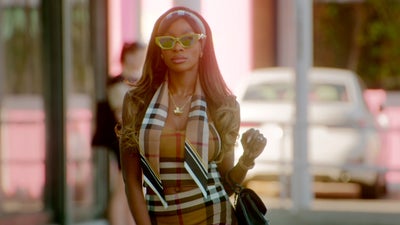 02PassingRebecca Hall’s Passing, based on the novel of the same name by Nella Larsen, gives viewers the opportunity to learn more about the psychological implications, privileges and dangers associated with ‘passing’ for white. Not only does Passing showcase the lives of wealthy Blacks during the Harlem Renaissance, it also provides a brief glimpse into the subculture of Black and white movers and shakers who co-mingled together during a time when history would lead us to believe otherwise. In Passing, Irene (Tessa Thompson) is an upper-class mixed Black woman who is married to a very successful Black man, and they have their own Black house servants and household. Irene enjoys the privileges of being a wealthy Black woman while navigating the delineations set in place for her by social norms of the time period.
02PassingRebecca Hall’s Passing, based on the novel of the same name by Nella Larsen, gives viewers the opportunity to learn more about the psychological implications, privileges and dangers associated with ‘passing’ for white. Not only does Passing showcase the lives of wealthy Blacks during the Harlem Renaissance, it also provides a brief glimpse into the subculture of Black and white movers and shakers who co-mingled together during a time when history would lead us to believe otherwise. In Passing, Irene (Tessa Thompson) is an upper-class mixed Black woman who is married to a very successful Black man, and they have their own Black house servants and household. Irene enjoys the privileges of being a wealthy Black woman while navigating the delineations set in place for her by social norms of the time period. 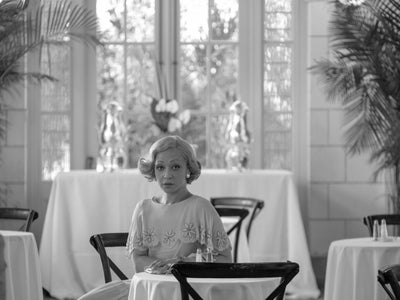 03Self-Made: Inspired by the Life of Madam C.J. WalkerSelf-Made is a historical drama television series that delves into the life of Madam C.J. Walker (Octavia Spencer), a legendary female self-made millionaire who defied the odds during a time when women and African-Americans were often regarded as second-class citizens. As a result of her haircare empire, she was able to leave behind a legacy of wealth to her descendents. This series not only showcases Walker’s entrepreneurial journey. It also showcases the experiences of other women who advocated for themselves to attain resources as well.
03Self-Made: Inspired by the Life of Madam C.J. WalkerSelf-Made is a historical drama television series that delves into the life of Madam C.J. Walker (Octavia Spencer), a legendary female self-made millionaire who defied the odds during a time when women and African-Americans were often regarded as second-class citizens. As a result of her haircare empire, she was able to leave behind a legacy of wealth to her descendents. This series not only showcases Walker’s entrepreneurial journey. It also showcases the experiences of other women who advocated for themselves to attain resources as well. 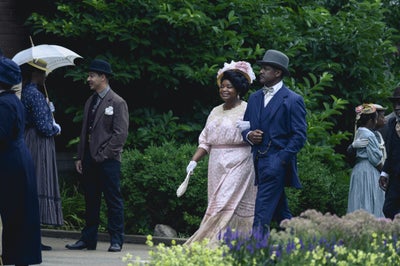 04HarrietWhile Harriet delves into the unique life of Harriet Tubman, and how she changed the face of American history, this movie also gives a glimpse into the lives of free Blacks, and even some whites who assisted during the Underground Railroad. Janelle Monae’s wonderful portrayal of Marie Buchanon, a wealthy Black socialite and property owner shows viewers how free Blacks used their resources to help others and chips away at the image of the white savior being the only path to freedom.
04HarrietWhile Harriet delves into the unique life of Harriet Tubman, and how she changed the face of American history, this movie also gives a glimpse into the lives of free Blacks, and even some whites who assisted during the Underground Railroad. Janelle Monae’s wonderful portrayal of Marie Buchanon, a wealthy Black socialite and property owner shows viewers how free Blacks used their resources to help others and chips away at the image of the white savior being the only path to freedom. 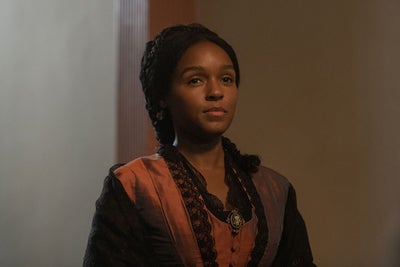 05BelleDirected by Amma Asante, Belle brings to life the real-life story of Dido Elizabeth Belle (Gugu Mbatha-Raw), the interracial daughter of a Royal Navy Captain (Matthew Goode) during the 18th-century. This movie is effective, because it steers clear of the “tragic mulatto” stereotype while providing a nuanced portrayal of what life is like for a woman of color who was raised in an aristocratic family. Asante’s Belle thoroughly examines the peculiar institutions of race, classism, and the oftentimes oppressive residue that comes along with following social protocol. While exceptionally privileged, Belle has her fair share of unjust circumstances. But, she is portrayed as a woman of great beauty, grace, dignity and skill.
05BelleDirected by Amma Asante, Belle brings to life the real-life story of Dido Elizabeth Belle (Gugu Mbatha-Raw), the interracial daughter of a Royal Navy Captain (Matthew Goode) during the 18th-century. This movie is effective, because it steers clear of the “tragic mulatto” stereotype while providing a nuanced portrayal of what life is like for a woman of color who was raised in an aristocratic family. Asante’s Belle thoroughly examines the peculiar institutions of race, classism, and the oftentimes oppressive residue that comes along with following social protocol. While exceptionally privileged, Belle has her fair share of unjust circumstances. But, she is portrayed as a woman of great beauty, grace, dignity and skill. 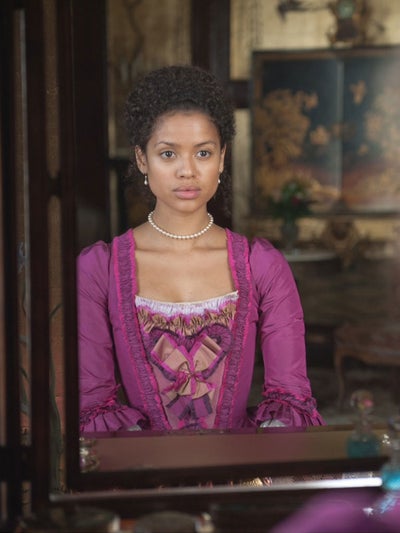 06Jumping The BroomJumping the Broom shows the beauty and the drama of what can conspire when two people who love each other choose to love one another, despite coming from two very different socioeconomic backgrounds. Sabrina Watson (Paula Patton) and Jason Taylor (Laz Alonso) have absolutely no idea what they are getting into when both of their families converge for the pre-wedding festivities on Martha’s Vineyard. Despite some tribulation, they end up “jumping the broom” nevertheless. In the film, Sabrina is a pretty, smart and ladylike woman who comes from a loving, two-parent home with parents who can provide her with resources, and a soft place to fall if she needs it. Then movie serves as a positive counter-stereotype to the trope of a pretty woman needing to marry for money or security.
06Jumping The BroomJumping the Broom shows the beauty and the drama of what can conspire when two people who love each other choose to love one another, despite coming from two very different socioeconomic backgrounds. Sabrina Watson (Paula Patton) and Jason Taylor (Laz Alonso) have absolutely no idea what they are getting into when both of their families converge for the pre-wedding festivities on Martha’s Vineyard. Despite some tribulation, they end up “jumping the broom” nevertheless. In the film, Sabrina is a pretty, smart and ladylike woman who comes from a loving, two-parent home with parents who can provide her with resources, and a soft place to fall if she needs it. Then movie serves as a positive counter-stereotype to the trope of a pretty woman needing to marry for money or security. 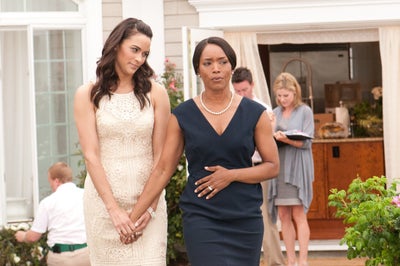 07The Secret Life Of BeesDirected by Gina Prince-BytheWood and based on the novel by Sue Monk Kidd, The Secret Life of Bees centers the lives of three, beautiful Black sisters who live a life of great comfort in 1964 in South Carolina. As a result of August Boatwright’s (Queen Latifah) successful bee-keeping and honey-making business. Nestled in a vibrant, pink home on acres of land that they own, August and her sisters June Boatwright (Alicia Keys) and May Boatwright (Sophie Okenedo) spend their days: learning new things, playing classical instruments, eating nice meals, and tending to their beautiful home. It is here, on their own property that they provide an oasis for a mother, and later that mother’s daughter, Lily Owens (Dakota Fanning) during their time of need. This movie is impactful because it showcases women empowerment through entrepreneurship, the power of female relationships, and the security that comes along with home ownership.
07The Secret Life Of BeesDirected by Gina Prince-BytheWood and based on the novel by Sue Monk Kidd, The Secret Life of Bees centers the lives of three, beautiful Black sisters who live a life of great comfort in 1964 in South Carolina. As a result of August Boatwright’s (Queen Latifah) successful bee-keeping and honey-making business. Nestled in a vibrant, pink home on acres of land that they own, August and her sisters June Boatwright (Alicia Keys) and May Boatwright (Sophie Okenedo) spend their days: learning new things, playing classical instruments, eating nice meals, and tending to their beautiful home. It is here, on their own property that they provide an oasis for a mother, and later that mother’s daughter, Lily Owens (Dakota Fanning) during their time of need. This movie is impactful because it showcases women empowerment through entrepreneurship, the power of female relationships, and the security that comes along with home ownership. 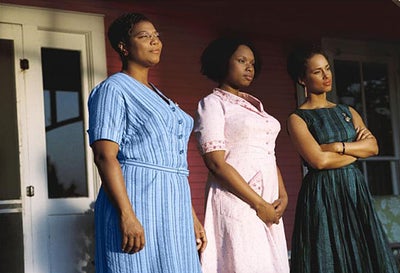 08Eve’s BayouWritten and directed by Kasi Lemmons, Eve’s Bayou is truly a study on the many subcultures and beliefs that are embedded generationally within many Black communities. In Eve’s Bayou, the storyline centers on the Batiste family, a wealthy family in New Orleans. While Louis Batiste, the patriarch of the family holds the financial power; it is the women, who have the authority metaphysically. The Batiste women are “seers” who pass the gift of dreams and visions to the next generation maternally, and in Eve’s Bayou the culture and norms of Louisiana folk are handled with great care, and there is not a mockery made of the supernatural.
08Eve’s BayouWritten and directed by Kasi Lemmons, Eve’s Bayou is truly a study on the many subcultures and beliefs that are embedded generationally within many Black communities. In Eve’s Bayou, the storyline centers on the Batiste family, a wealthy family in New Orleans. While Louis Batiste, the patriarch of the family holds the financial power; it is the women, who have the authority metaphysically. The Batiste women are “seers” who pass the gift of dreams and visions to the next generation maternally, and in Eve’s Bayou the culture and norms of Louisiana folk are handled with great care, and there is not a mockery made of the supernatural. 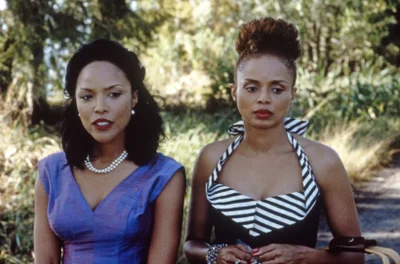 09CluelessCher is an extremely popular Beverly Hills high-school student, and her best friend Dionne is her fashion-forward sidekick. It was refreshing to see Dionne not portrayed as the poor friend on the other side of the tracks, but as equally privileged and, arguably, even more beautiful than her friend Cher. Dionne rocked adorable long braids and had a cool Black boyfriend and neither played into stereotypical depictions of Black life in Los Angeles.
09CluelessCher is an extremely popular Beverly Hills high-school student, and her best friend Dionne is her fashion-forward sidekick. It was refreshing to see Dionne not portrayed as the poor friend on the other side of the tracks, but as equally privileged and, arguably, even more beautiful than her friend Cher. Dionne rocked adorable long braids and had a cool Black boyfriend and neither played into stereotypical depictions of Black life in Los Angeles. 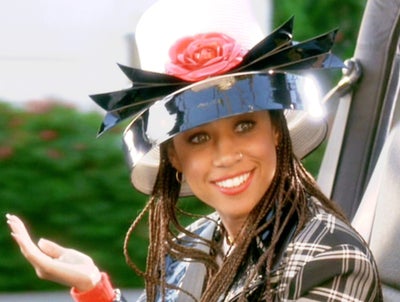 10The Fresh Prince of Bel-AirWhile The Fresh Prince centered Will (Will Smith), a teenage, inner-city youth from Philadelphia who went to live with his rich aunt in the posh neighborhood of Bel-Air for a better life, it was the Banks kids who effortlessly showcased the ease and leisurely lifestyle of the children of the Black elite that made this show so appealing. Hilary Banks, the eldest daughter of the family, humorously encompassed the spoiled rich girl trope. She unabashedly embraced the financial and social privileges that came along with being a daughter of a very successful judge. Her financial dependence on her father was beautiful to witness, and her freedom to shop, travel and just be “rich” as a result of her father was a refreshing counter-stereotype, especially for Black girls and young women who grew up with fathers who were absent from the home.
10The Fresh Prince of Bel-AirWhile The Fresh Prince centered Will (Will Smith), a teenage, inner-city youth from Philadelphia who went to live with his rich aunt in the posh neighborhood of Bel-Air for a better life, it was the Banks kids who effortlessly showcased the ease and leisurely lifestyle of the children of the Black elite that made this show so appealing. Hilary Banks, the eldest daughter of the family, humorously encompassed the spoiled rich girl trope. She unabashedly embraced the financial and social privileges that came along with being a daughter of a very successful judge. Her financial dependence on her father was beautiful to witness, and her freedom to shop, travel and just be “rich” as a result of her father was a refreshing counter-stereotype, especially for Black girls and young women who grew up with fathers who were absent from the home. 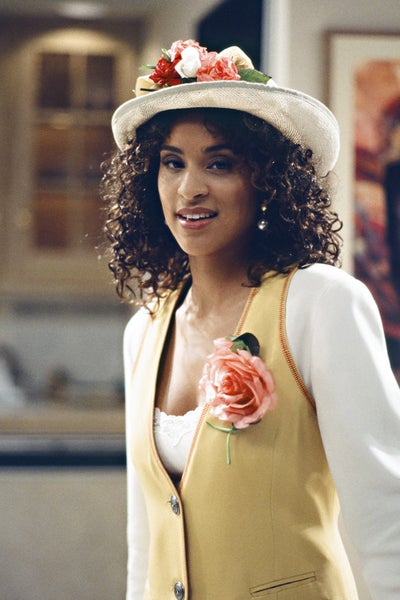 11A Different WorldWith its empowering portrayal of Black college life, sophisticated and multidimensional cast of diverse characters, and highly educational content that provided historical and cultural context to Black life, A Different World will forever be considered a groundbreaking show. Featuring a staple of characters that we’ve all come to know and love, A Different World, showed the youth and next generation that it was okay to aspire to be extremely brilliant, and that going to college was not just a dream, but the reality of many Black students around the country. One of the most memorable characters was Whitley Gilbert (Jasmine Guy), the daughter of an extremely wealthy Black family, who was the personification of luxury and privilege. Whitley and her mother (Diahann Carroll) were on screen during a time when Black affluence were not a common narrative on television. The character of Whitley was a form of representation for Black girls and young women who were raised by sophisticated mothers and lived lives of access and privilege.
11A Different WorldWith its empowering portrayal of Black college life, sophisticated and multidimensional cast of diverse characters, and highly educational content that provided historical and cultural context to Black life, A Different World will forever be considered a groundbreaking show. Featuring a staple of characters that we’ve all come to know and love, A Different World, showed the youth and next generation that it was okay to aspire to be extremely brilliant, and that going to college was not just a dream, but the reality of many Black students around the country. One of the most memorable characters was Whitley Gilbert (Jasmine Guy), the daughter of an extremely wealthy Black family, who was the personification of luxury and privilege. Whitley and her mother (Diahann Carroll) were on screen during a time when Black affluence were not a common narrative on television. The character of Whitley was a form of representation for Black girls and young women who were raised by sophisticated mothers and lived lives of access and privilege. 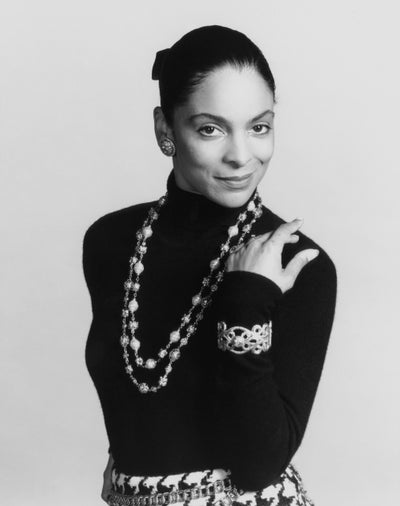
The post Why Representation Of Rich Black Women On Screen Matters appeared first on Essence.

0 Commentaires